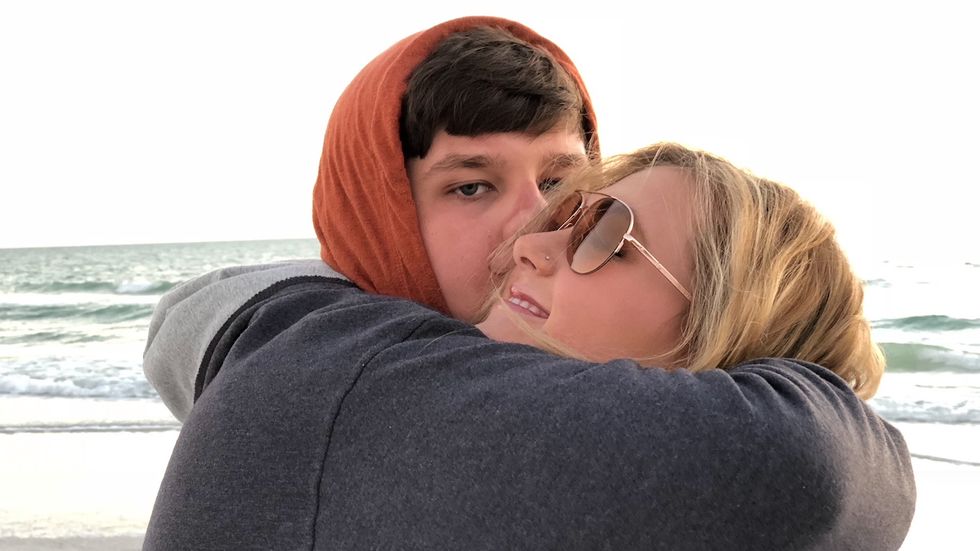April is my favorite month. Why?
Because I get to celebrate my little brother and millions of other unique people around the world living with autism. Nowadays, it’s rare to not know someone with autism. Recent statistics show that 1 in 68 children are affected by autism, and that statistic is on the rise.
If you want to participate this Autism Awareness Month, don’t donate to Autism Speaks. I’m not saying this because they advertise autism as a marriage-dooming tragic burden, or because they have zero autistic people in positions of leadership, I’m saying it because they pull money away from local communities and have yet to help a single one of the dozens of families in my city that have loved ones affected by autism.
That being said, here are several things you can do during Autism Awareness month to ensure your efforts will actually make an impact.
1. Keep your donations local
Before you donate to a national charity, do some research on local non-profits that help people with autism in your area. Donating locally will ensure that your money will actually reach families, children, and adults living with autism that will benefit tremendously from your donation.
My favorite place to donate to during Autism Awareness Month is Roads to Recovery in my hometown of Dayton, Ohio.
2. Volunteer locally
Volunteering at a local organization for people with autism is beyond rewarding. Even better than donating your money, donate your time! Interacting with people that are actually affected with autism will not only visibly show you the positive impact you are having on their lives but it will give you a better understanding of what it's like to live with autism.
3. Befriend someone with autism
This is by far the BEST thing you can do during Autism Awareness Month or any month. People living with autism are some of the kindest, most genuinely loveable humans you will ever meet. Every person with autism is unique and brings something new and exciting to the table.
Yet, most people are too shy or intimidated to befriend them.
Reach out to someone you know with autism. Be their friend, because even if it seems like they aren't interested in your friendship, they are. People with autism spectrum disorders find it difficult to reach out to peers, so be a friend and reach out to them instead.
4. Treat every month like it’s Autism Awareness Month
With the population of people with autism consistently growing, we need to become more mindful as a society on how to treat people with autism. We need more things like, sensory-friendly events so that people with autism can feel safe when stepping out and socializing.
Be mindful of the people around you, be mindful of what you say. Stop using “you’re autistic” as an insult (yes, it's a thing, sadly). Most importantly, stop looking at autism like its a burdening disability.
5. Spread awareness
Unless you live under a rock, I’m pretty sure we are all “aware” of autism spectrum disorders.
But I’m talking about a different kind of awareness.
The causation of autism is still unknown but there are many theories, some controversial. With the statistics showing 1 in 10,000 people with autism spectrum disorders prior to 1990 to 1 in 68 in the year 2017, there is certainly something to talk about.
Even though there is really no such thing as a “genetic epidemic”, much research continues trying to link genetics to the alarming rise of autism. Even Katie Wright, daughter of the founders of Autism Speaks Bob and Suzanne Wright, has her own ideas on autism.
Another theory is an environmental factor, vaccinations being at the forefront. In 1986, a law was passed in which we are no longer allowed to sue pharmaceutical companies for vaccine injuries.
With that, the United States has a National Vaccine Injury Compensation Program which the court has awarded over 3.8 billion dollars so far to the vaccine injured. The rate at which we vaccinate our children is far greater than that of our parents and grandparents, so it is definitely something to consider.
No matter your take on the controversial causation of autism is, the end result is the same- there is no known cure. Before we normalize Autism, let’s spread awareness and remain open-minded when it comes to finding the cause, because I believe it’s possible.
That being said, please be patient and kind to one another as a cause is discovered.
No, autism is NOT easy. Yes, countless families with autism struggle financially and emotionally. Regardless, let's stop demonizing a disorder that is increasingly common in our society.
Let's embrace the diversity that people with autism provide, and let's accept them with open arms because they are human, just like us.
Here are some local and impactful organizations in my hometown you can donate to in honor of Autism Awareness Month:
Soul Center Ohio
http://www.soulcenterohio.com/
Roads to Recovery
http://www.roadstorecovery.org







































